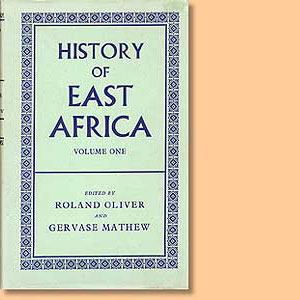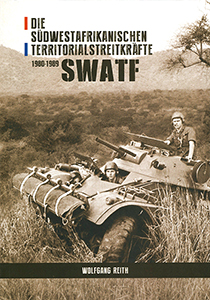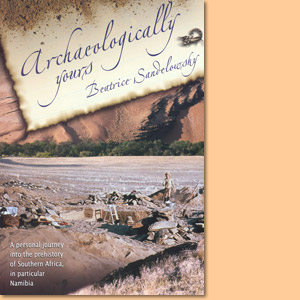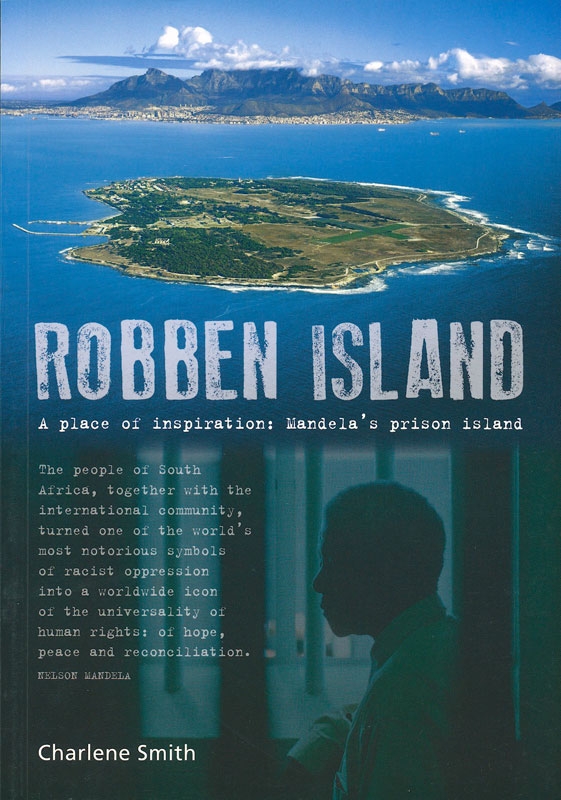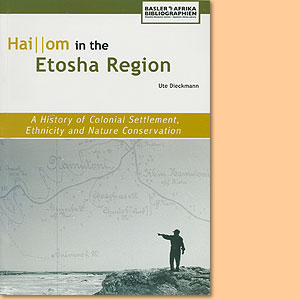Dinosaurs, Diamonds and Democracy. A short, short history of South Africa, by Francis Wilson
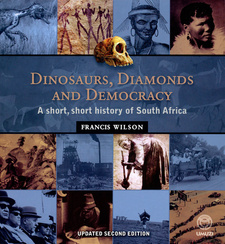
Dinosaurs, Diamonds and Democracy. A short, short history of South Africa, by Francis Wilson. ISBN 9781415201404 / ISBN 978-1-4152-0140-4
Dinosaurs, Diamonds and Democracy, this short history of South Africa is a miracle of compression, an accessible and compulsively readable account which spans billions of years of pre-history before taking the story up to the present day.
In South Africa, it has been said, the interpretation of history is even more controversial than the analysis of the present. Be that as it may, what is certainly true is that the understanding of even the remote past changes with astonishing speed. In the few months that have elapsed since the first edition of this book was released in October 2009, the results of major discoveries have been published in scientific journals which add significantly to our knowledge of not only the world of dinosaurs, but also the evolution of humanity itself. A new dinosaur, a new hominid, new evidence of symbolic thinking by human beings before they ever moved out of Africa: all bear testimony to the excitement of history in South Africa today. It is perhaps foolish to try to encapsulate in so short a book a history which stretches back to the beginning of life itself. A brief text can, however, provide an illuminating overview for the visitor to South Africa, as well as for those South Africans without the time or means to read more deeply. It can also serve as a stimulus for those who wish to study further, using one or more of the many excellent single- or multi-volume histories of the country. To many people South Africa is known chiefly for its beautiful landscapes, its wild animals, its gold mines and for the oppression of apartheid. But there is far more to the country than that. The Cradle of Humankind, a World Heritage Site outside Johannesburg, bears testimony to the importance of South Africa in the evolution of human beings. The subsequent immigration of people over the past 2 000 years created a melting pot in which the central theme, as has been argued in The Oxford History of South Africa, is 'interaction between peoples of diverse origins, languages, technologies, ideologies and social systems meeting on South African soil'. The discovery of all kinds of minerals over the past century and more has turned the country into the jewellery box of the world. And the political transition, led by Nelson Mandela, from a racist state to a modern democracy has aroused admiration around the globe: an admiration somewhat tempered, though, by current concerns about the country's future. Undoubtedly, there will be critics of such a concise work, especially when the subject is as unresolved and controversial as the history of South Africa. Were the Dutch and the English who came to South Africa in the 17th and 19th centuries 'settlers' or 'invaders'? What of the Bantu-speaking iron and pottery workers from the north, who crossed the Limpopo River into the land of the San and the Khoe between 2 000 and 1 500 years ago? When - and from where - did the Khoe, pastoral people, acquire their sheep and cattle? Even the palaeontological history, going back hundreds of thousands of years, has been evolving rapidly in recent decades and many crucial questions are far from settled. In our own day, there are very different perspectives on the relations between black and white and on the role of different political groups within the liberation movement. It is not possible to include in a book of this nature enough to satisfy all of its readers. If it does no more than whet the appetites of the curious, so that they catch a glimpse of just how fascinating the history of South Africa is, no matter how recent, nor how far back one goes, then it will have done its job. But if it can also help to facilitate, in some small way, further debate about controversial aspects of the past, then it will indeed have achieved all that can be hoped for. For those who wish to read more, a list of further reading has been prepared online at www.umuzi-randomhouse.co.za, where detailed endnotes on sources may also be found. Opportunity is also provided there for readers to write their own blogs - comments, corrections, criticisms or questions, all of which will add to the debate as we seek to forge a common history for all South Africans.
This is an excerpt from the book: Dinosaurs, Diamonds and Democracy. A short, short history of South Africa, by Francis Wilson.
Book title: Dinosaurs, Diamonds & Democracy
Author: Francis Wilson
Imprint: Umuzi
Type: History
Publisher: Random House Struik
Cape Town, South Africa 2010
ISBN 9781415201404 / ISBN 978-1-4152-0140-4
Softcover, 15x16 cm, 128 pages, throughout photos
Wilson, Francis im Namibiana-Buchangebot
Dinosaurs, Diamonds and Democracy. A short, short history of South Africa
A high quality production with sumptuous illustrations and good maps, Dinosaurs, Diamonds and Democracy - A short, short history of South Africa, is a coat pocket history book.
Weitere Buchempfehlungen
History of East Africa Volume 1
One of three standard setting Volumes in which the history of East Africa is studied from an African as well as from a European standpoint
Die südwestafrikanischen Territorialstreitkräfte (SWATF) 1980-1989
Erstmals in Deutsch beschrieben: Die Geschichte der südwestafrikanischen Territorialstreitkräfte (SWATF) von der Gründung 1980 bis zur Auflösung 1989.
Archaeologically yours. A personal journey into the prehistory of Southern Africa/Namibia
Archaeologically yours introduces research methods and their results in the prehistory of southern Africa and the recent history in Namibia.
Robben Island: A place of Inspiration. Mandela's Prison Island
Robben Island, best known as Nelson Mandela's prison, here is introduced in various facetts.


